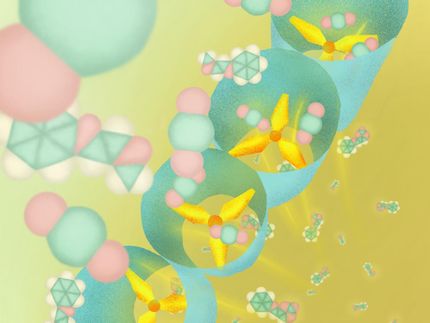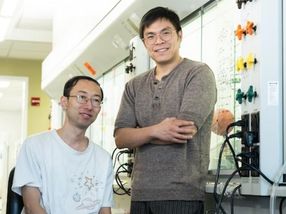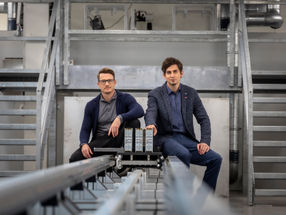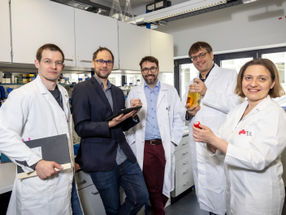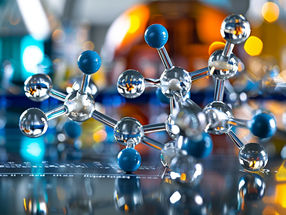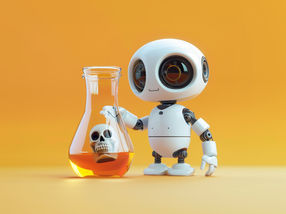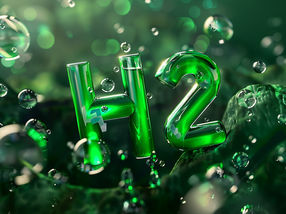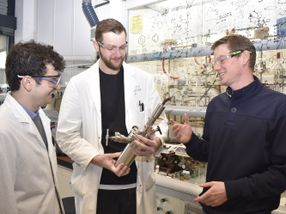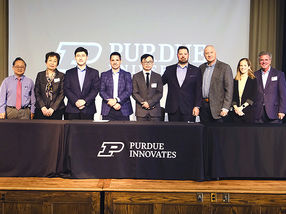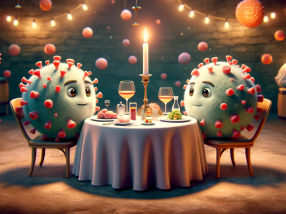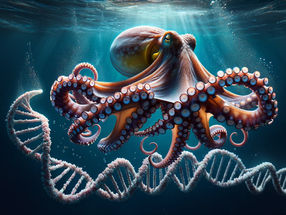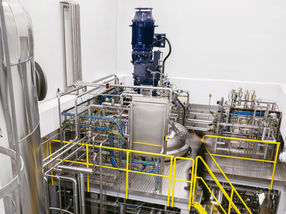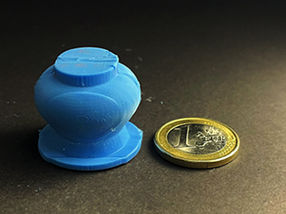Tiny, light-activated crystal sponges fail over time. Why?
Hole-filled crystals called MOFs could one day serve as high-tech sponges, sopping up spilled oil, greenhouse gases and other chemicals.But there's a problem: Many MOFs - metal-organic frameworks - lose their sponging capabilities over time.
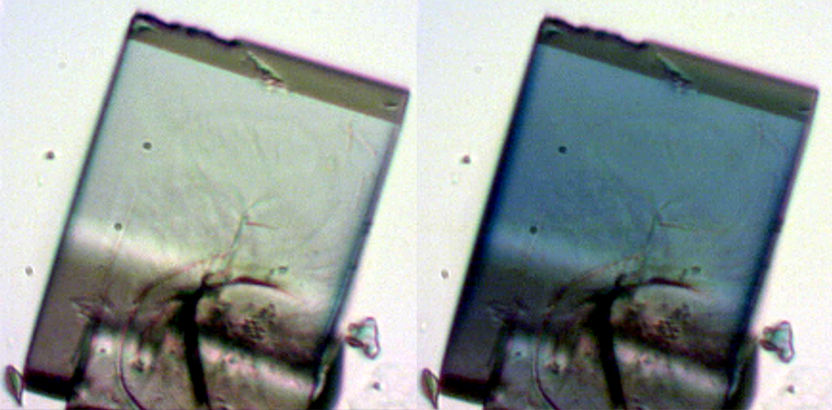
Ian Walton
To overcome this hurdle, University at Buffalo chemist Jason Benedict is studying what causes one particularly intriguing type of MOF to fail. He has created light-activated versions of the crystal sponges in his lab, and hopes his work in understanding how scientists can extend the minute contraptions' lives.
"These sponges are photoswitchable, which means they're activated by light," explains Benedict, an assistant professor of chemistry in UB's College of Arts and Sciences. "But what happens over time is that the material stops responding to light, so you turn it off and then you can't turn it on again. We want to find out exactly why this happens. It's a somewhat tricky thing to study."
Saving the UBMOF
Benedict's study focuses on a series of MOFs his lab created, the UBMOFs. (MOFs are typically named for the institution where they are first synthesized, Benedict says.)The UBMOFs work by changing their geometry when they're hit by ultraviolet light.This causes the shape of individual pores inside the MOFs to morph, which matters because it's one way to trap materials inside the crystals.
You could, in theory, soak up a chemical and then alter the shape of the pores so that the captured compound can no longer escape. Then, to turn the sponge off and release the contents, you'd expose the MOF to heat, which causes it to return to its original shape.
Why this on-off function stops working over time is the mystery that Benedict and his team are investigating. "The ability to turn it on and off slowly decays," Benedict says. "It could be that the chemicals in the crystal are reacting with the environment in a way that degrades the chemistry. It could also be that the compound takes on an unfavorable geometry that doesn't respond to light or heat in the way that it originally did."
Most read news
Organizations
Other news from the department science

Get the chemical industry in your inbox
From now on, don't miss a thing: Our newsletter for the chemical industry, analytics, lab technology and process engineering brings you up to date every Tuesday and Thursday. The latest industry news, product highlights and innovations - compact and easy to understand in your inbox. Researched by us so you don't have to.
